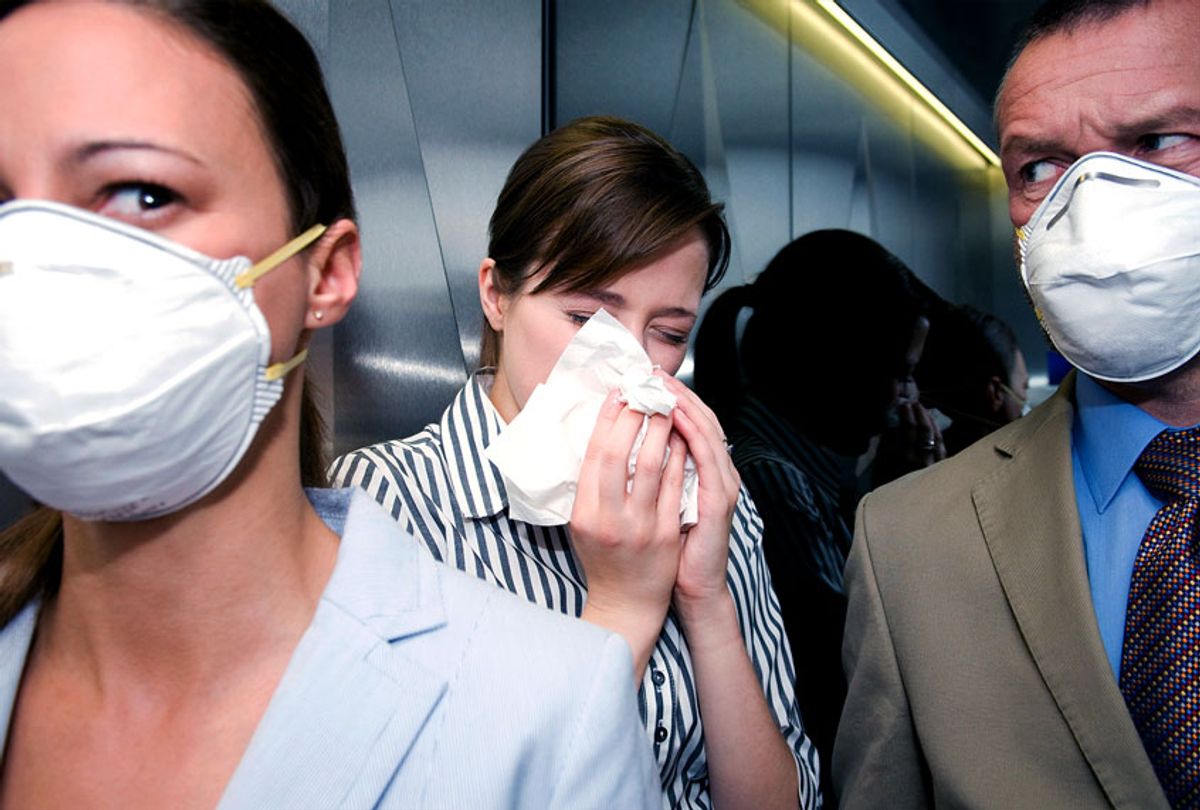The coronavirus quarantine might last far longer than expected.
A new study suggests that individual immunity to COVID-19 may not last more than a couple of months, meaning that a person could become reinfected. It's a possibility that – if true – will have sobering implications for our ability to contain the pandemic.
The paper, which has not yet been peer reviewed, was posted last week in the preprint server medRxiv. After pointing out that antibodies to the virus that causes COVID-19, SARS-CoV-2, are usually detectable within 10 to 15 days after a person begins exhibiting symptoms, the researchers note that it is unclear how long these antibodies will last and whether they immunize patients from being infected again.
To ascertain whether the antibodies that can neutralize the virus (nAbs) persist long enough to provide lasting protection, a group of scientists studied blood samples taken over time from 65 people who tested positive for the coronavirus — whose conditions ranged from asymptomatic to life-threatening — over a period of up to 94 days after they initially displayed symptoms.
They found that more than 95% of the studied patients had developed the antibodies and carried nAbs roughly eight days after they were diagnosed, with nAb levels peaking after an average of 23 days. The nAb levels soon began to drop, however, and among patients who were tested after 65 days, the number who retained potent nAbs fell to 16.7%. Patients with higher nAb levels at their peak maintained them after more than 60 days, while those who did not have higher levels wound up returning almost to their baseline. These findings were reinforced by a similar study the researchers conducted of 31 healthcare workers at a different group of British hospitals.
"A wide range of SARS-CoV-2 neutralizing antibody (nAb) titres have been reported following infection and these vary depending on the length of time from infection and the severity of disease," reads the study. "Further knowledge on the magnitude, timing and longevity of nAb responses following SARS-CoV-2 infection is vital for understanding the role nAbs might play in disease clearance and protection from re-infection (also called renewed or second wave infections)."
Salon reached out to Dr. Russell Medford, Chairman of the Center for Global Health Innovation and Global Health Crisis Coordination Center, for his thoughts on the study.
"This is a very good study," Medford told Salon. "What it shows is that this is similar to what we've seen with the other coronaviruses in this class, that antibody titres do go down after exposure. The real issue for us now is, while that's true, to what degree does is that related to immunity and reduction in the severity of infection going forward. And we don't know the answer to that right now."
This is not the first time that speculation has arisen over whether human beings will be able to develop immunity to the coronavirus. A doctor named D. Clay Ackerly wrote to Vox that he had a 50-year-old patient who contracted COVID-19 on two seemingly separate occasions.
"In general, the unknowns of immune responses to SARS-CoV-2 currently outweigh the knowns," Ackerly wrote. "We do not know how much immunity to expect once someone is infected with the virus, we do not know how long that immunity may last, and we do not know how many antibodies are needed to mount an effective response."
There are also concerns that, even if an effective vaccine is developed to treat COVID-19, not enough people will take it for herd immunity to occur. After a survey in May found that only 49% of Americans would definitely get vaccinated if one became available (compared to 31% who are unsure and 20% who absolutely would not), Dr. Georges Benjamin told Salon that those numbers were troubling.
"We very clearly know that, if we don't get 70-something-% of the population covered, we will probably not get to herd immunity," Benjamin, executive director of the American Public Health Association, explained. "There are some people that think that, with this virus, we might be able to achieve it with 50%, so that's not 100%. But I'm thinking that 70-something-% is about where we need to be, and it's because I've looked at some of the data. We may achieve it with 50%, but the bottom line is if we'd run the risk of not getting herd immunity with the vaccine."

Shares